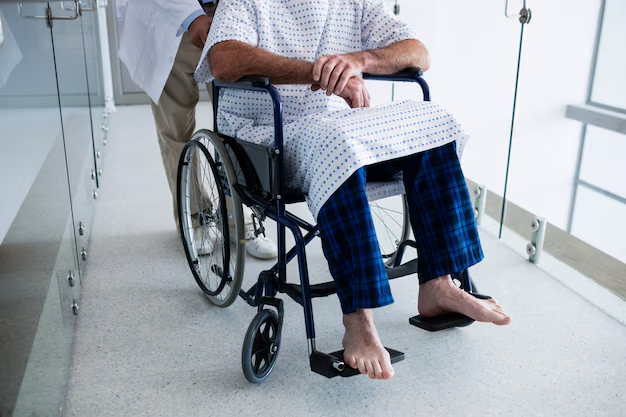Your Guide to Does Medicare Pay For Wheelchairs
What You Get:
Free Guide
Free, helpful information about Medicare Insurance and related Does Medicare Pay For Wheelchairs topics.
Helpful Information
Get clear and easy-to-understand details about Does Medicare Pay For Wheelchairs topics and resources.
Personalized Offers
Answer a few optional questions to receive offers or information related to Medicare Insurance. The survey is optional and not required to access your free guide.
Discover How Medicare Can Help Cover Wheelchair Costs
Navigating the world of healthcare financing can be both daunting and vital, especially when it comes to understanding the specifics of Medicare coverage. For those seeking solutions for mobility needs, it’s essential to know how Medicare potentially aids in securing a wheelchair to enhance quality of life without overwhelming expenses.
What Does Medicare Cover?
Medicare Part B is the part that handles durable medical equipment (DME) such as wheelchairs. Eligibility includes:
- A written order from your doctor stating the need for the wheelchair for use in your home.
- The wheelchair must be considered medically necessary.
- You must use a supplier who is enrolled in Medicare.
However, not all types of wheelchairs are covered. This often includes the standard manual wheelchairs, power wheelchairs, and even scooters, as long as the specific medical criteria are met.
How Much Will You Pay?
Medicare typically covers 80% of the approved amount for the wheelchair, leaving you responsible for the remaining 20% plus any applicable deductibles and premiums. Here’s what this might look like:
- Medicare-approved amount: If the wheelchair costs $800, Medicare could cover up to $640.
- Patient’s cost responsibility: You would need to cover $160 plus any deductible.
Medigap or Medicare Supplement plans might cover some or all of these out-of-pocket costs, depending on your plan details.
Securing Financial Assistance Beyond Medicare
For those unable to cover the remaining costs, exploring additional financial assistance programs is an excellent step:
- Medicaid: If you qualify, Medicaid may cover costs Medicare doesn’t, including wheelchairs. The state programs vary, so check your state’s regulations.
- Veterans Affairs (VA): Veterans can access assistance through VA programs that may cover equipment costs.
- Nonprofit Organizations: Some organizations offer financial help or donated equipment to those in need.
Further Financial Tools and Opportunities
Dealing with healthcare expenses can be a stepping stone to explore other financial avenues. Consider delving into:
- Debt Relief Programs: Reduce other financial burdens, freeing funds to allocate toward medical expenses.
- Educational Grants: These can help cover costs of courses aimed at financial literacy, aiding better management of healthcare-related and other financial challenges.
- Credit Card Solutions: Explore cards with payment plans or 0% APR promotions to distribute out-of-pocket costs over time without additional interest.
Knowing your funding opportunities empowers you to achieve a balanced financial future while meeting essential healthcare needs. Whether it’s acquiring a wheelchair through Medicare or leveraging broader government aid programs, each step taken efficiently integrates affordability with accessibility.
Quick Reference: Financial and Assistance Programs 🌟
- Medicare Part B: 80% coverage on approved wheelchairs.
- Medigap: Supplement your Medicare to cover out-of-pocket costs.
- Medicaid: State-specific programs may cover additional expenses.
- Veterans Affairs (VA): Assistance for eligible veterans.
- Debt Relief Programs: Alleviate other financial burdens.
- Educational Grants: Enhance financial management skills.
- Credit Solutions: Spread equipment payments without interest.
What You Get:
Free Medicare Insurance Guide
Free, helpful information about Does Medicare Pay For Wheelchairs and related resources.

Helpful Information
Get clear, easy-to-understand details about Does Medicare Pay For Wheelchairs topics.

Optional Personalized Offers
Answer a few optional questions to see offers or information related to Medicare Insurance. Participation is not required to get your free guide.


Discover More
- Am I Elgible For Medicare
- Am I Enrolled In Medicare
- Am I Qualified For Medicare
- Are Adult Diapers Covered By Medicare
- Are Chemotherapy Drugs Covered By Medicare Part d
- Are Colonoscopies Covered By Medicare
- Are Covid Tests Covered By Medicare
- Are Cpap Machines Covered By Medicare
- Are Cpap Supplies Covered By Medicare
- Are Dental Implants Covered By Medicare
